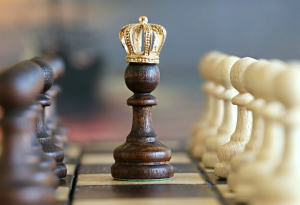Want To Improve Your Brain Function? Lean To Play Chess.
This is a writeup on a recent article published by MyrtleBeachSC News, entitled “How Playing Chess Improves Your Brain Function”.
Often known as a game for the intellectually gifted, chess is the best sport for exercising the most important organ in our body: the brain. While chess grandmaster Bobby Fischer popularized it in the 1950s and 1960s, chess is still played around the world today among participants of all ages, from the young to the elderly.
Playing chess may not help you build your biceps or tone your abdominal muscles, but your lifelong mental health will benefit from it, producing a healthy and beautiful mind, one of your best tools.
In this article, you will learn all the influences chess has on the brain. Yes, chess can improve your brain functions and we will show you how.

Why Is Chess So Praised and What Does It Teach?
Paraphrase: The main advantage of chess is the harmonious development of both hemispheres of the brain. Regular classes perfectly develop a person’s thinking, memory, and imagination. Children who play chess have better results in school. Experiments have proven this. Chess material is useful in the study of the exact sciences as well as the natural and human sciences.
The qualities of character developed by this wise game are difficult to count. “Chess is enriching. It teaches you to live, it teaches you to be responsible, it just makes you a more serious person,” says Vladimir Kramnik, the 14th world chess champion.
When you are regularly confronted with making critical situations on the chessboard, you get used to making thoughtful decisions and taking full responsibility for them. A child learning to play chess in childhood will more easily cope with all the tasks of life.
Chess teaches you to be more thoughtful, self-critical, collected, and careful. To solve a chess problem or win a game against a strong opponent, you need to learn how to inventively find the best moves and predict future events. Defeats, inevitable for every player, even for world champions, teach you to suffer failures and learn from them.
Of course, success in chess does not come spontaneously: it takes a long time (more than a year) of regular and hard training to reach the top. Thus, understanding the secrets of chess art perfectly cultivates the power of will.
Chess Improves Planning and Tactical Skills
Position analysis is an important aspect of chess. Making a game plan: At the start of a game, the player conducts a more or less in-depth analysis, and makes a game plan based on that analysis. Everyone can analyze, but, thanks to chess, the analysis develops much faster and more efficiently. Since playing chess requires strategic and critical thinking, it is a great way to test your tactical skills and improve them.
Chess helps develop the prefrontal cortex. It also helps teens make better decisions in all areas of life and may prevent them from making irresponsible and risky decisions.
Chess Improves Logical Thinking
Chess is a logic game. All moves are interconnected and arise from the current situation, subject to a common plan. The ability to think logically develops from game to game, lesson to lesson. This process takes place on its own, without much effort. The game itself teaches your mental apparatus the ability to build logical structures.
Chess Improves Concentration and Attention
The game of chess is impossible without sobriety and attention. But if you don’t have those qualities, don’t worry. Regular participation in chess tournaments will reveal and strengthen these qualities in you.
In order not to lose the thread of the game, you need to concentrate completely on the game. Of course, this ability will develop gradually with each game of the necessary quality. In time, you will feel how easy it is for you to focus, and it will apply not only to chess but to everything in your life.
Chess Improves Memory
Chess is great training for the memory. Calculating many options and keeping them in mind while remembering typical positions makes the brain work with maximum load. Complete memory (the so-called “chess memory”) is in function – both remote and close. The champion chess player remembers everything: dozens of starting schemes, hundreds of endgame positions, and thousands of games played, both his own and others. As for the ordinary chess lover, his or her standard memory knowledge is well developed thanks to chess training.
No doubt that chess has a positive effect on the development of mental abilities. The benefits in the development of children and adults have been proven many times in many studies and experiments. The influence of chess on intelligence has been studied in theory and confirmed in practice.
You can read more about chess training from this article in The Science Times entitled “10 Things Chess Does To Your Brain”.
#################
We hope you have enjoyed this write-up on “How playing chess improves your brain function”. Please leave us a comment on the website and let us know if you have decided to learn chess, as well as what results you have obtained.
#################
Other brain games can be found under the heading “See Our Blogs”, by clicking any of the published blogs on the pages for the following categories:
“Brain Games For Children”
“Brain Games For Adults”
“Brain Games For Seniors”
“Advanced Brain Training”
“Optimal Brain Health”


